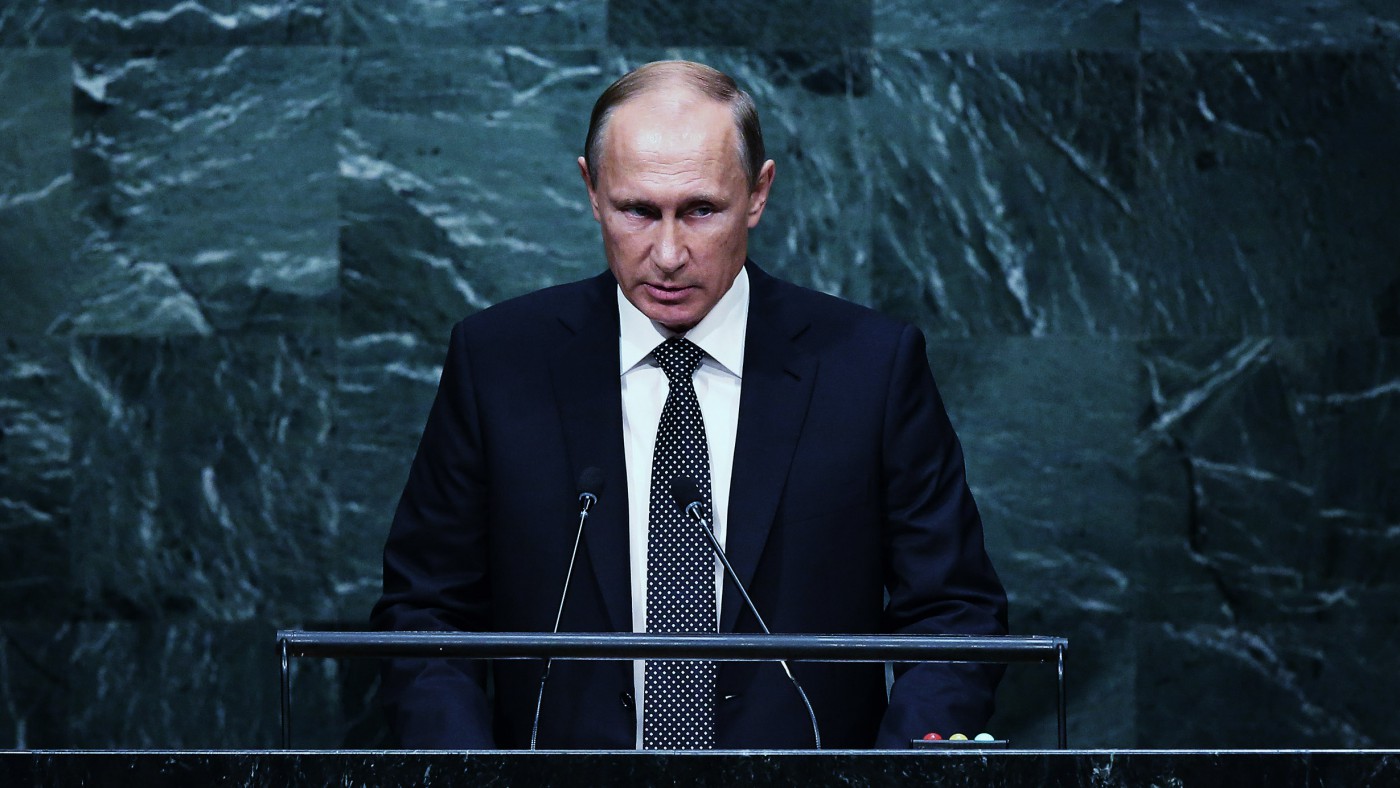Sell Obama, buy Putin. That is the market shorthand for the geopolitical situation that has developed in the Middle East. Vladimir Putin has spectacularly wrong-footed the West in Syria. At no time did Britain, America or any other intruder into that hornets’ nest have any coherent policy, beyond the inane mantra: “Assad must go.”
This is the antithesis of the self-evident reality that Assad must stay. Only Assad has any legitimacy: the United States maintained diplomatic relations with the Assad regime, father and son, with occasional hiccups, from 1974 until 2012. As late as March 2011 Hillary Clinton was describing Bashar al-Assad as a “reformer”.
Unfortunately, America and Britain have mainlined for so long on the hallucinatory drug of “exporting democracy” that they have lost all sense of realpolitik. Saddam was a dictator, ran the script: he must be overthrown and replaced by “democracy” – as if something like a coalition of Liberal Democrats and Greens was going to follow his overthrow. Then the West moved on to Gaddafi, applauded the overthrow of Mubarak and embraced the myth of the “Arab Spring” – “Bliss was it in that dawn…”
It appears that only secular dictators can keep jihadism down in the Middle East. Yet still David Cameron considered bombing Assad. Officially we support the “moderates” in the Free Syrian Army. But there are no moderates in the Middle East, apart from a few Western-educated doctors and academics, who are demographically insignificant. They are the people who, post-Assad, would be wiped out by jihadists.
There are as many as 20 factions within the non-Isil forces fighting Assad. Among them are Jabhat al-Nusra, al-Qaeda’s Syrian franchise, and the Islamist “Army of Conquest”. That means there is no realistic prospect of the Free Syrian Army defeating Assad and forming a secular government. It simply cannot happen. The choice is Assad or Jihad.
Enter Vladimir Putin. A supreme realist, he practises ruthless realpolitik. His foreign policy is not about exporting democracy or homosexual rights, but about Russian interests, first and last. It is the time-honoured policy of Peter the Great and his successors. He has bases to defend in Syria, jihadism to suppress in Chechnya and other Russian spheres of interest.
Since his policy is to preserve Bashar al-Assad, his military must, logically, destroy all groups trying to bring down Assad, including the Free Syrian Army. Western forces no longer have the option of attacking Assad since they would be engaged by Russian warplanes, with incalculable consequences. It transpires that the “US-backed Syrian fighters” amount to 80 men.
So, Putin takes out Assad’s non-Isil enemies, then helps the West to crush Isil. The winners: Vladimir Putin and Bashar al-Assad. The icing on the cake for Putin is that escalating the war will drive more refugees into Europe, destabilising the EU, an undesirable power bloc on his western flank.
This is not a second Afghanistan for Russia. Putin remembers that debacle and will restrict himself to airstrikes, weapons supplies and training for Assad’s army, infiltration of Russian special forces and a few troops; but the boots on the ground will be supplied by Iran and Hezbollah.
Putin is not only clever, but lucky. Britain and her allies had just started to play the moral outrage card, denouncing Russian airstrikes “which led to civilian casualties”, when a US airstrike in Afghanistan destroyed a hospital. We shall not be hearing American spokesmen addressing this embarrassing theme for some time to come.
Vladimir Putin has exposed Barack Obama, David Cameron and the rest of the West’s leaders as hot-air merchants. Russia does not have the military or economic strength of the United States, but it compensates with a clear strategy and an uncompromising grasp of realpolitik. Russia is again a superpower. Sell Obama, buy Putin.


